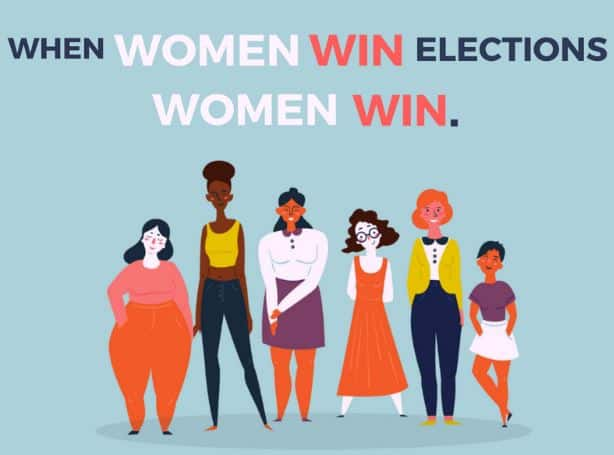
By: Meghan Feeks
May was a huge month for Democratic women. Primaries in 11 states and a runoff in Texas advanced women to the general election throughout the country, bringing the total number of female Democratic nominees for Senate, House and governor so far to 67 (Republicans have nominated another 11).
With an unprecedented number of women running for national office this year — and many more still running for state and local office — women candidates (particularly Democrats) are on track to smash records in 2018. But it’s not just the number of women that’s making history: in Georgia, Stacey Abrams became America’s first-ever black, female nominee for governor. In Kentucky’s 6thdistrict, Democrats handed the congressional nomination to Amy McGrath, the first female marine to fly an F-18 fighter jet in combat.
Meanwhile, Texas Democrats nominated two women who could also make history: if elected, Gina Ortiz Jones would become the first woman, lesbian, Iraq war veteran and Filipina-American to represent her state’s 23rd district in Congress. And Lupe Valdez, the Democratic nominee for governor, could become the first openly gay, Latina governor of the Lone Star State.
An urgent need
With hundreds of Democratic women still in the running for national and state office, the number of women on the ballot in November is set to continue growing. But just as May brought hope of seeing greater and more diverse representation of women in government, it also brought painful reminders of how urgently it’s needed.
As we celebrated Mother’s Day, American moms still faced zero guarantee of maternity leave, while earning just 71 cents on the dollar of working dads.
As Ireland voted to overturn its constitutional abortion ban, the Trump administration announced a domestic “gag rule” that would cut funding for any healthcare provider that offers abortions — or even information about how and where to obtain one.
In Santa Fe and Noblesville, two school shootings (the 22nd and 23rd school shootings this year) once again laid bare America’s gun violence problem — an issue that disproportionately affects women and particularly women of color.
In New York City, the arrest of film director Harvey Weinstein on rape charges represented one baby step on a long and grueling path to justice for the 1-in-6 American women who have survived sexual assault, and the 81% of women who have experienced sexual harassment.
Heading into Pride Month, we recognize the significant obstacles still facing the LGBTQ community following its deadliest year ever in the US, with transgender women accounting for 72% of anti-LGBTQ homicides.
And on the heels of Memorial Day, as we remember the American ideals our fallen heroes died defending, we also remember that it’s up to all of us — regardless of gender, race, class or creed — to fight, every day, to ensure their sacrifice was not in vain.
Putting women in their place
These are just a handful of the reasons we need more women in government, especially in a Congress where men still outnumber women 4-to-1. For when women win elections, all women win: research shows that women politicians push much harder for policies that support women and children or address issues like education, health, poverty and civil rights. Women are also much more likely to support gun control, and when it comes to working across the aisle, they also tend to be more collaborative and bipartisan.
With many women Democratic nominees facing tough odds in their races this fall, the DAUK Women’s Caucus is determined to help as many as possible make it over the finish line. To this end, we will be working with the Global Women’s Caucus to highlight and mobilize support for Democratic women who are heading to the general election.
We invite women (and likeminded allies) everywhere to join our cause — for behind every powerful woman, there must be a whole tribe of other powerful women who have her back.
Early support is critical to ensure these candidates can put their funding and resources to the best possible use, so we urge you to find the female candidate you like best, and get behind her in any way that you can — whether it’s through donations, phone-banking, postcard-writing or simply talking to your friends and family about why you support her.
For real-time status updates on all women candidates running for US Congress and statewide elected executive, check out the summary and complete list maintained by Rutgers University’s Center for American Women and Politics.
To learn more about and support pro-choice female candidates, visit EMILY’s List.


